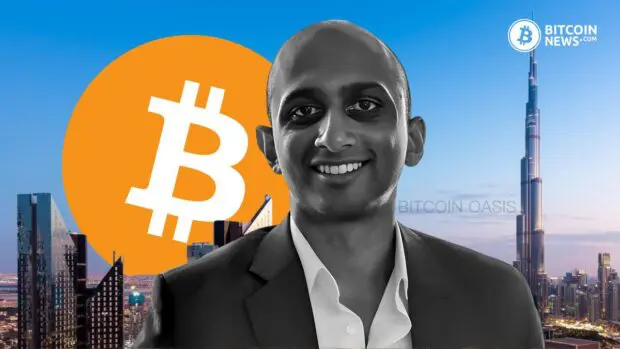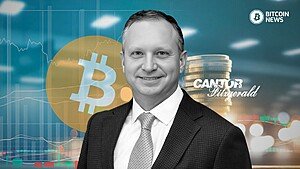From February 7th to 9th, Dubai became the epicenter of Bitcoin innovation as industry enthusiasts gathered for Bitcoin Oasis 2024. The interview spearheaded by the esteemed Bitcoin advocate Stephan Livera, introduced 5 interviewees who were asked questions relevant to their expertise.
About the Interviewer: Stephan Livera
Stephan Livera is a Head Educator at Swan Bitcoin, a partner venture, and contributor for outlets and publications for Bitcoin companies. He is the creator and host of the Stephan Livera Podcast, recognized as one of the world’s leading Bitcoin podcasts. It is focused on educational interviews about the economics and technology of Bitcoin.
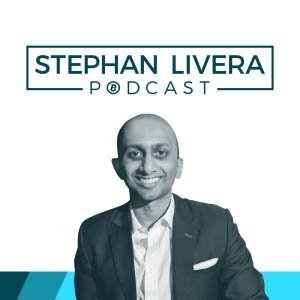
Alejandro De La Torre

Alejandro De La Torre is currently the CEO of a Bitcoin mining company called DEMAND, a Stratum V2 mining solution.
In a captivating discussion, Alejandro De La Torre shares insights into revolutionizing Bitcoin mining. De La Torre explores strategies to enhance decentralization within the mining process.
Alejandro advocates for the utilization of alternative revenue streams such as heat recapture, and challenges misconceptions surrounding Bitcoin’s environmental impact. De La Torre’s innovative approaches underscore the potential for Bitcoin mining to be both profitable and environmentally sustainable.
Livera: “And that definitely Cuts against this whole ‘oh no Bitcoin mining boiling the oceans bad for the climate’ I mean it’s simply not true. How would you explain that quickly to people?”
De La Torre: “An ignorant statement because a lot of the people who are mining right now are using otherwise stranded energy… But let’s give an example: I’ve worked with an operation that uses pig manure that generates methane. They capture that methane with equipment and they generate electricity, and so, they’re basically capturing that methane that otherwise would have been into the environment…”
Luke Dashjr
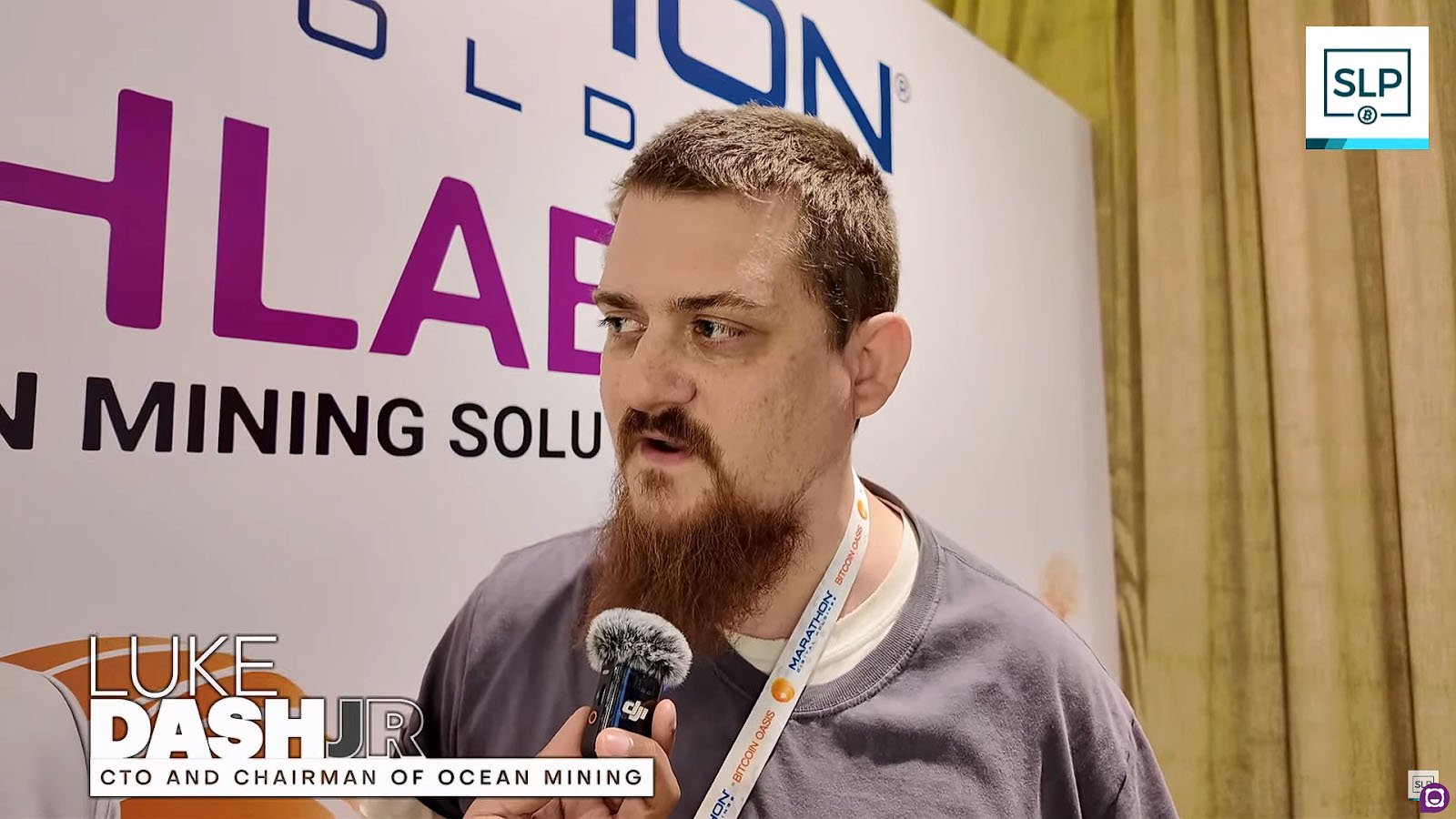
Luke Dashjr, is the current CTO and chairman of OCEAN Mining, which aims to radically decentralize Bitcoin Mining, permitting miners to construct their block templates.
Luke Dashjr offers a unique perspective on combating spam on the Bitcoin blockchain while simultaneously enhancing miner earnings.
Luke emphasizes the use of gradual updates to node software (also known as a soft-fork) and the implementation of innovative payout systems, proposing solutions to ensure the integrity and efficiency of the Bitcoin Network. His insights shed light on the intricate balance between security, scalability, and profitability within the Bitcoin ecosystem.
Livera: “How would you define spam on the Chain?”
Dashjr: “Using Bitcoin, I would agree, is permissionless but attacking Bitcoin is quite different. Spam is generally and broadly defined as anything that people have not consented to participate in or don’t want to participate in, but they’re being forced to against their will”.
Prince Philip of Serbia
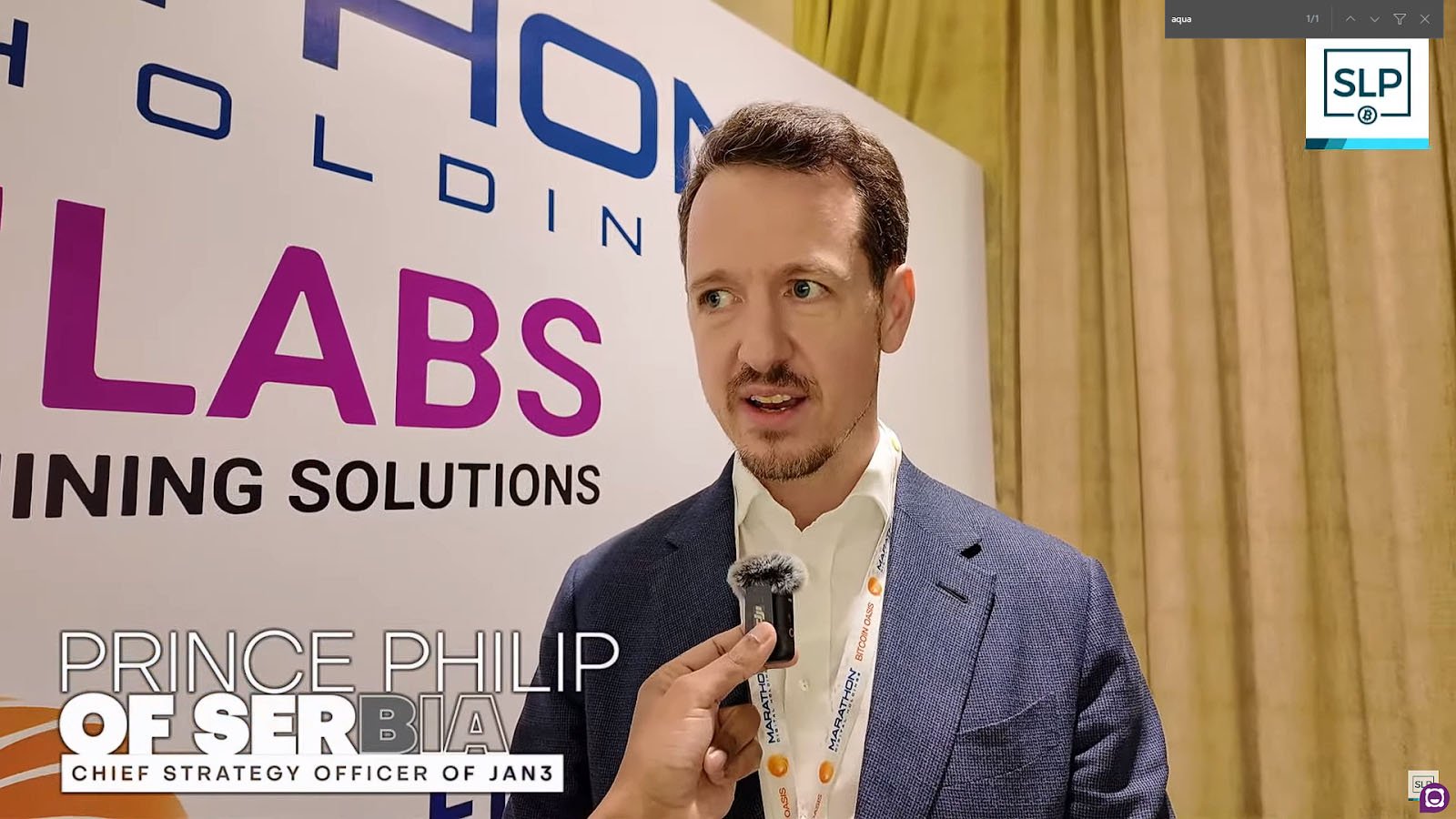
Prince Phillip of Serbia is the current CSO of JAN3, a company focused on nation-state adoption of Bitcoin.
Prince Phillip shares his vision for driving nation-state adoption of Bitcoin, through initiatives like Aqua, a user-friendly wallet designed to simplify access to Bitcoin, stablecoins, and the Liquid Network. Phillip aims to bridge grassroots movements with top-down strategies, particularly in regions like Latin America. Phillip and his team at JAN3 are paving the way for the widespread adoption of Bitcoin as a transformative force in global finance.
Prince Phillip elaborated on the rationale behind integrating stablecoins into Aqua Wallet:
Livera: “Let’s chat a bit about Aqua… Trying for LATAM adoption there?”
Prince Phillip Replied: “When I was in Argentina in November 2022, I saw that they like to have exposure to the US dollar because their Peso had horrible inflation… Samson saw the Gap that there’s no wallet out there that is predominantly Bitcoin Centric, with usdt on Liquid that allows people to have their saving savings account in Bitcoin, but also, their spending account in usdt on liquid… So, [Aqua] its trying to fill that Gap… People want the dollar exposure but also that savings account, and they can go between in and out of one and the other.”
Pete Rizzo

Pete Rizzo is a Bitcoin journalist and current Editor of Bitcoin Magazine.
Pete Rizzo, through insightful discussions on the implications of spam and ordinals, challenges the Bitcoin community to confront underlying motivations and engage in authentic conversations. By exploring the influx of intellectual capital and its impact on Bitcoin’s growth, Rizzo highlights the dynamic nature of the Bitcoin ecosystem and the opportunities it presents for innovation and development.
Livera: “Let’s start with this question of the spam, as I like to call it, or maybe the ordinals as you like to call it. In your view is it good or bad for Bitcoin?”
Rizzo: “[If] Bitcoin aligns everyone’s incentives, then we’re simply dealing with a group of people who right now aren’t as aligned but eventually will be aligned… They come and they build a lot of things that aren’t useful [from a monetary standpoint] but they’re not adding transactions or bringing Capital to the crypto apparatus which we agree is negative.
Giacomo Zucco
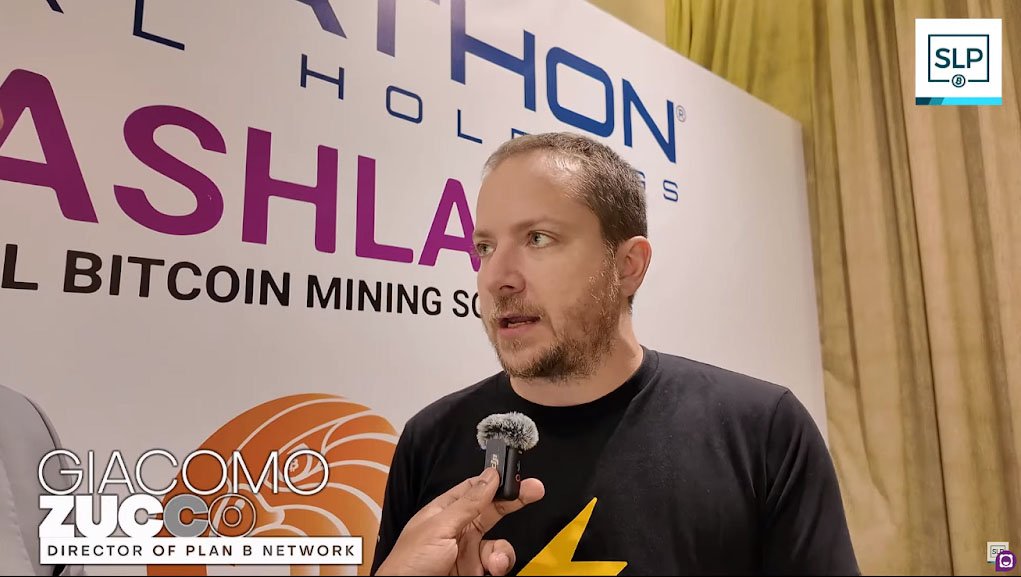
Giacomo Zucco, Director of Plan B Network, which focuses on Bitcoin Education.
Giacomo Zucco confronts challenges within the Bitcoin ecosystem while embracing opportunities for innovation. By defining spam “as unwanted information within an information-sharing system”, Zucco sheds light on the complexities surrounding filtering solutions. Through critical analysis of narratives surrounding spam and the rise of alternative solutions like Liquid or Federated sidechains, Zucco encourages the Bitcoin community to remain vigilant in preserving Bitcoin’s core principles while adapting to evolving technological landscapes.
Livera: Also with fees being very variable, there is kind of talk of people pushing off to use let’s say Liquid or use things like Fedimints for new coiners. Do you see concern there or do you see that it’s just ‘look that’s just the way it has to go’?
Zucco: “People will already gravitate to the simple Direction anyway instinctively… So we should not teach ‘for your use case just use custody’ It’s better, it’s true, but it’s better if we don’t… [Is] Not necessarily realistic… But you don’t say what is realistic you say what people need to hear. So we should never use custodial, but actually we will”

